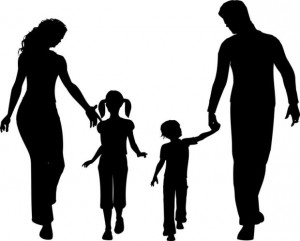UN Shifts and Extols Family – But Some Want it Redefined
 After decades resisting even mentioning the word, governments and advocates extolled the “family” at two special sessions at the UN last week.
After decades resisting even mentioning the word, governments and advocates extolled the “family” at two special sessions at the UN last week.
This year marks the 20th anniversary of the International Year of the Family. Pro-family advocates feared it would pass unnoticed, a casualty of the culture war. Some at the UN portray the family as a liability, harming women and children and dependent on governments. So advocates set to work educating diplomats.
As it happened, during this anniversary, countries have also been negotiating new development goals to take effect after 2015. As the months unfolded, some diplomats saw the indispensable role the family plays in helping poor and rich alike and that the family is the best means for carrying on civilization.
Last week, a small shift appeared. A special session of the General Assembly lauded the family on Wednesday.
The family forms the backbone to strong societies, provides social safety nets and empowers women in ways that help countries develop, Indonesia stated.
The family is an “intangible asset,” noted the Holy See. Its benefits are priceless and transcend measurement, from caring for the vulnerable, nurturing the next generation, to building peaceful communities. Among all options, a stable family has the lowest costs for individuals and states.
Earlier this year, some countries opposed honoring the family at the Human Rights Council in Geneva. They portrayed families as uniquely violent and discriminatory against women, children and the disabled.
Last week at the special session they had a kinder view.
“Social development across the globe” requires strong and stable families, said the U.S.
The EU supports strengthening the role of families, it stated, though it must reflect the diversity of family forms, an oblique term including homosexual or any grouping of people.
This was met with pleas to end “the absolute of homocentrism,” the unrelenting campaign to bring homosexuality into every arena.
“This may sound harsh,” said Belarus, “but as someone coming from a country that faced extensive social experimentation and engineering,” the challenges facing families must be tackled.
The choice is between destroying the foundations of the family for the sake of artificial social constructs, or defending the natural family as well as motherhood and fatherhood as inalienable attributes of each person.
“National borders do not defend against relativism,” he cautioned.
“Our action or inaction on the family in the UN will be one of the rare occasions where the world will be really watching.”
On Friday, legislators with the Political Network for Values presented policies at a Transatlantic Summit on “Strengthening the Family for Sustainable Development”. Move away from the trend of “de-familizing policies,” said Zoltan Balog, Hungary’s minister of resources, emphasizing there can be no long-term development without families or children.
Hungary introduced a tax benefit for newly married, since wedlock nurtures children and increases the quality and length of life.
A 21st century vision of the economy is reoriented around the family and prioritizes relationships, said Jeff Fortenberry. Lower taxes on parents and dependents, make governments accountable and affordable, and enhance civil society to boost community – because “small is beautiful,” said the U.S. congressman.
Most women want marriage and a family. Yet policymakers treat family as a drag on women. “Taking care of people is the main stuff of life,” said attorney Helen Alvare, and any system that claims to put people first must privilege the family.

